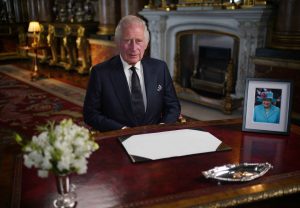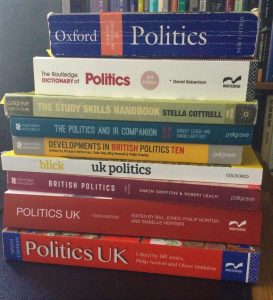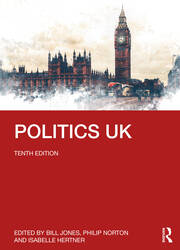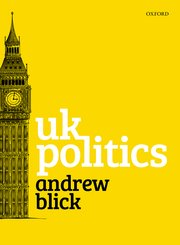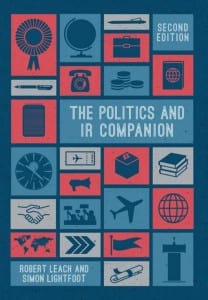The most surprising aspect of Rishi Sunak’s Cabinet reshuffle has been the appointment of the former Prime Minister, David Cameron, as Foreign Secretary. Cameron is no longer an MP and as it is a convention that government ministers sit in Parliament, he has accepted a seat in the House of Lords in order to enable him to take on the role.
Cameron’s appointment raises a number of interesting questions: about the ministerial career of former Prime Ministers; the appointment of Cabinet ministers from the House of Lords; and the implications of this for parliamentary scrutiny.
The political career of former Prime Ministers
David Cameron’s return to front line politics with a seat in the Cabinet is by no means unique but is relatively unusual. As has been widely reported, the last former Prime Minister to take a Cabinet post after leaving office was Alec Douglas-Hume, Conservative Prime Minister from 1963 to 1964, who served as Foreign Secretary under Edward Heath, from 1970 to 1974. Interestingly, Douglas-Hume had previously served as Foreign Secretary while sitting in the House of Lords before becoming Prime Minister. He gave up his seat in the Lords in 1963 in order to become Prime Minister, and for his second term as Foreign Secretary he sat in the House of Commons as the MP for Perth and Kinross.
Other former Prime Ministers who have taken on Cabinet roles after leaving office include Arthur Balfour, Prime Minister from 1902 to 1905, who went on to serve as Foreign Secretary, from 1916 to 1919 in the wartime administration of Lloyd George. Ramsay MacDonald and Neville Chamberlain were both given the opportunity to remain in the Cabinet after stepping down as Prime Minister, with the largely honorary role of Lord President of the Council. Although in Chamberlain’s case this was for only a short period until his death in October 1940.
In recent years, however, there has been a tendency for Prime Ministers to leave parliament completely shortly after leaving office. John Major, Tony Blair, Gordon Brown and most recently Boris Johnson all announced they were leaving the House of Commons shortly after the end of their premiership. Cameron’s appointment to the House of Lords is also relatively unusual. Although it had until recently been customary for former Prime Ministers to accept a seat in the House of Lords, Margaret Thatcher was the last former Prime Minister to do so. Of the seven former Prime Ministers currently alive, Cameron will be the only one sitting in the House of Lords, although two, Theresa May and Liz Truss, continue to sit in the House of Commons.
Why has David Cameron been given a seat in the House of Lords?
In order to enable David Cameron to be appointed to the Cabinet, Rishi Sunak has given him a seat in the House of Lords. Although there is no legal requirement for government ministers to sit in Parliament, it is a very strongly held convention. This is based on the principle that ministers must be directly accountable to Parliament and only members may answer questions on the floor of the House of Commons or the House of Lords.
It has been argued that the convention that ministers must be sitting members of Parliament limits the pool of individuals the Prime Minister can draw upon when making ministerial appointments. In a number of other states, ministers can be appointed from outside the legislature which arguably allows for a wider range of talented individuals to be drawn into the government. In the UK, a Prime Minister who wishes to make a ministerial appointment from outside Parliament does have the option of making someone a member of the House of Lords in order to make them available for ministerial office.
This practice is not particularly unusual. Gordon Brown made a number of direct ministerial appointments to the House of Lords including the former MP, Peter Mandelson, who left the Commons in 2004 but was elevated to the Lords in 2008 in order to become Secretary of State for Business, and Andrew Adonis who was appointed to the Lords in order to become a minister in the Department for Education and Skills. David Cameron himself appointed several business leaders to the House of Lords in order to give them ministerial roles, including Stephen Green, the former group chairman of HSBC and Ian Livingston, the former chief executive of BT. More recently, in 2021 the UK’s former chief negotiator for exiting the European Union, David Frost, was made a peer by Boris Johnson, and appointed as Minister of State in the Cabinet Office with responsibility for Brexit.
An alternative approach could have been to find a safe seat for David Cameron which would have allowed him to return to Parliament as a member of the House of Commons. This would, however, be dependent on a safe seat being made available, possibly by an MP who was already planning to stand down at the next election. This may also have been a decidedly risky strategy given that the government has recently lost several by-elections in supposedly safe seats. In 1964, Patrick Gordon Walker was appointed as Foreign Secretary by Harold Wilson despite having lost his seat in the 1964 general election. He subsequently resigned after losing a by-election in a supposedly safe Labour seat. Moreover, while Cameron may be happy to take on the role of Foreign Secretary, he may not have been prepared to return to the day-to-day grind of fighting an election and being a constituency MP.
While it is not particularly unusual for governments to make appointments to the House of Lords in order to allow individuals to become ministers, it is relatively rare for members of the House of Lords to hold such senior ministerial office. There are usually somewhere between twenty and thirty ministers in the House of Lords, compared to around eighty in the House of Commons. Governments need to appoint ministers in the Lords to enable someone to speak in the upper House on behalf of each government department, but ministers in the Lords tend to hold more junior ministerial positions, as Ministers of State or Parliamentary Under-Secretaries. In recent years, the only member of the upper House who has routinely sat in the Cabinet is the Leader of the House of Lords.
This was not always the case. Up until the end of the nineteenth century it was common practice for Cabinet ministers, including the Prime Minister to sit in the Lords. The last Prime Minister to sit in the Lords was Lord Salisbury who left office in 1902, although the practice of appointing Foreign Secretaries from the upper House continued well into the twentieth century. Lord Curzon was Conservative Foreign Secretary from 1919 to 1924 and was widely expected to succeed Andrew Bonar Law as Prime Minister in 1923. He lost out to Stanley Baldwin in part because it was felt the Prime Minister should sit in the Commons. Lord Halifax was Foreign Secretary at the outbreak of the Second World War and, as noted above, the Earl of Home, was Foreign Secretary before renouncing his title, perhaps mindful of Curzon’s difficulties, to become Prime Minister in 1963. The last Foreign Secretary to be appointed from the House of Lords was Lord Carrington, who held the post from Thatcher’s election in 1979 until his resignation following the Argentine invasion of the Falkland Islands in 1982.
What are the implications of the Foreign Secretary sitting in the House of Lords?
Lord Carrington’s experience is perhaps revealing of the difficulties Lord Cameron could face. With Carrington unable to answer questions in the House of Commons, answering Foreign Office questions in the Commons was delegated to two junior ministers. In most circumstances this worked admirably well, but when the Falklands crisis erupted, MPs in the House of Commons did not conceal their anger at their inability to question the Foreign Secretary directly. In addition to being accountable to Parliament for their department, senior ministers play an important role in defending the government and the Prime Minister. Lord Carrington’s inability to provide the kind of support the PM needed in the House of Commons contributed to his decision to resign. Lord Cameron may be a useful and experienced ally to the Prime Minister in public and in the media but there is little he can do if things get sticky in the House of Commons.
Cameron’s appointment also means that there is real concern about the impact on parliamentary scrutiny of having the Foreign Secretary sitting in the Lords. The Foreign Secretary will not be available to answer departmental questions in the Commons, which come around about once a month. Nor will he be available to answer urgent questions, which are much more common now than they were when Lord Carrington was Foreign Secretary. In particular, if there is a major international incident which threatens international security or UK interests, the government’s response in the House of Commons will be provided by a more junior minister, who quite possibly does not attend Cabinet. Alternately if the situation is particularly grave, the Prime Minister may find himself delegating for the Foreign Secretary in the House of Commons. Which may appease the Commons but won’t make life easier for the Prime Minister.
The Speaker of the House of Commons was quick to make a statement about the need to ensure that parliamentary scrutiny of foreign policy is not undermined by Lord Cameron’s appointment:
“[G]iven the gravity of the current international situation, it is especially important that this House is able to scrutinise the work of the Foreign, Commonwealth and Development Office effectively. I have therefore commissioned advice from the Clerks about possible options for enhancing scrutiny of the work of the Foreign Secretary when that post is filled by a Member of the other House. I also look forward to hearing the Government’s proposals on how the Foreign Secretary will be properly accountable to this House. “
On the other hand, the Foreign Secretary will not avoid parliamentary scrutiny altogether. The House of Lords is likely to institute its own mechanism to provide regular questions to the Foreign Secretary. Moreover, there is considerable expertise in foreign affairs in the Lords, including several former permanent secretaries from the Foreign Office. As a new peer, Cameron will also be unfamiliar with the practices of the second chamber and will quickly realise that he cannot rely on the same level of support in the chamber as he once enjoyed in the more partisan House of Commons.
The Foreign Secretary will also not entirely avoid scrutiny by MPs. Although he can’t appear to answer questions in the chamber of the House of Commons, members of the House of Lords can appear before House of Commons select committees. He is likely to be much in demand from the House of Commons select committee on foreign affairs, as well as a number of joint committees which comprise members from both Houses, most notably the joint committees on human rights and national security and the Intelligence and Security Committee.
As a former Prime Minister, David Cameron is an experienced parliamentarian, but his ministerial experience is confined to that of being Prime Minister. He may find the role of Foreign Secretary and the demands of adapting to scrutiny in the House of Lords particularly demanding. It is also possible that the absence of a Foreign Secretary in the House of Commons may place increased demands on the government and even the Prime Minister himself. Both will be hoping that the benefits outweigh the undoubted challenges ahead.

